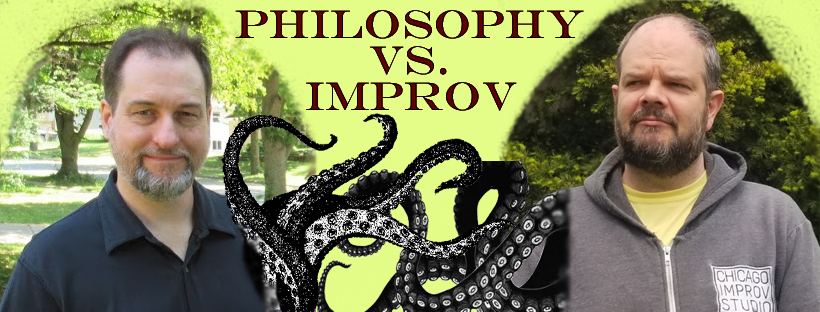The Partially Examined Life Philosophy Podcast has been sharing reading-group discussions on classic philosophy texts for well over a decade, with over 40 million downloads to date.
However, interactive conversations about texts you probably haven’t read can be difficult to follow no matter how much we try to make them accessible, and a decade of history means that many names that might be dropped that those newly checking in may or may not be familiar with.
I’m one of the hosts of that podcast, and while I’m very happy with the format and thrilled to have reached so many people with it, I also appreciate the dynamic of a one-on-one tutoring interchange, and I stand firmly behind one of the original rules of The Partially Examined Life: No name-dropping.
As we read more complicated texts, our interest becomes figuring out what the philosopher meant, and only secondarily whether that meaning actually relates to something in people’s actual lives. Yes, we are critical (some say too critical) of the subject-matter, but we’re also big fans; we could bask in the literary glow of Hegel or Plato or Simone de Beauvoir or Hannah Arendt all day, and have often done so.
My newest podcast, Philosophy vs. Improv, is reciprocal tutoring realized as comedy (or at least performance art?). As someone who studied philosophy for many years in school and has then been hosting The Partially Examined Life for so long, I’m in a good position to come up with particular philosophical points worth teaching to a new learner.
My Philosophy vs. Improv co-host is Bill Arnett, founder of the Chicago Improv Studio, author of The Complete Improviser, and the former training director at Chicago’s famed iO Theater. He has appeared repeatedly on the Hello From the Magic Tavern improv comedy podcast as a character named Metamore who leads the show’s hosts (who are all fantasy characters a la Tolkein or Narnia) in a table-top role-playing game called Offices and Bosses. This and other shows ignited in me an urge to learn the fundamentals of improv comedy, and so each Philosophy vs. Improv episode, Bill comes up with some trick of the trade to try to teach me.
There are two rules of engagement: First, we can’t just state up front what the lesson is. We can ask each other questions, go through exercises, and otherwise discuss the material, but the lesson should emerge naturally. Second, we don’t take turns in trying to teach each other. As he’s making me act out scenes, I’m trying to set up those scenes or have my character react in such a way to exemplify my philosophical point. As we’re discussing philosophy, Bill is relating it to comparable points about improv. Of course, we’re both interested in learning as well as teaching, so the “vs.” in the show’s title is not so much competition between us as between which lesson ends up more nearly producing its intended effect in the other person.
It is surprising how smoothly these dueling lessons often fit together, as lessens about ethics in particular, about the art of living, are very much relevant to the improvisational skills of being present, presenting yourself, discovering the reality of a situation, and exploring truths of character. Fiction is often a very effective vehicle for addressing philosophy, whether the characters themselves are talking philosophically (even if they’re animals, cave men, or otherwise in a non-typical situation for discussion), or perhaps we’re embodying some political situation or thought experiment that we’re subjecting to philosophical analysis.
Likewise, back to the days of Plato, a dose of irony in discussing philosophy can be useful, and this format allows us to not just be ourselves on a podcast discussing philosophy, but at any point to launch into some comedy bit, and in this way show the absurdity of views we’re arguing against or just play with the ideas in a manner that I think enhances mental flexibility, which is essential both for improvisation and for philosophical creativity.
Listen to the latest episode (#7), entitled “Meritocracy Now!”
Start listening with Philosophy vs. Improv episode 1.
For more information, see philosophyimprov.com.
Mark Linsenmayer is the host of four podcasts: Pretty Much Pop: A Culture Podcast, Nakedly Examined Music, The Partially Examined Life, and Philosophy vs. Improv.



